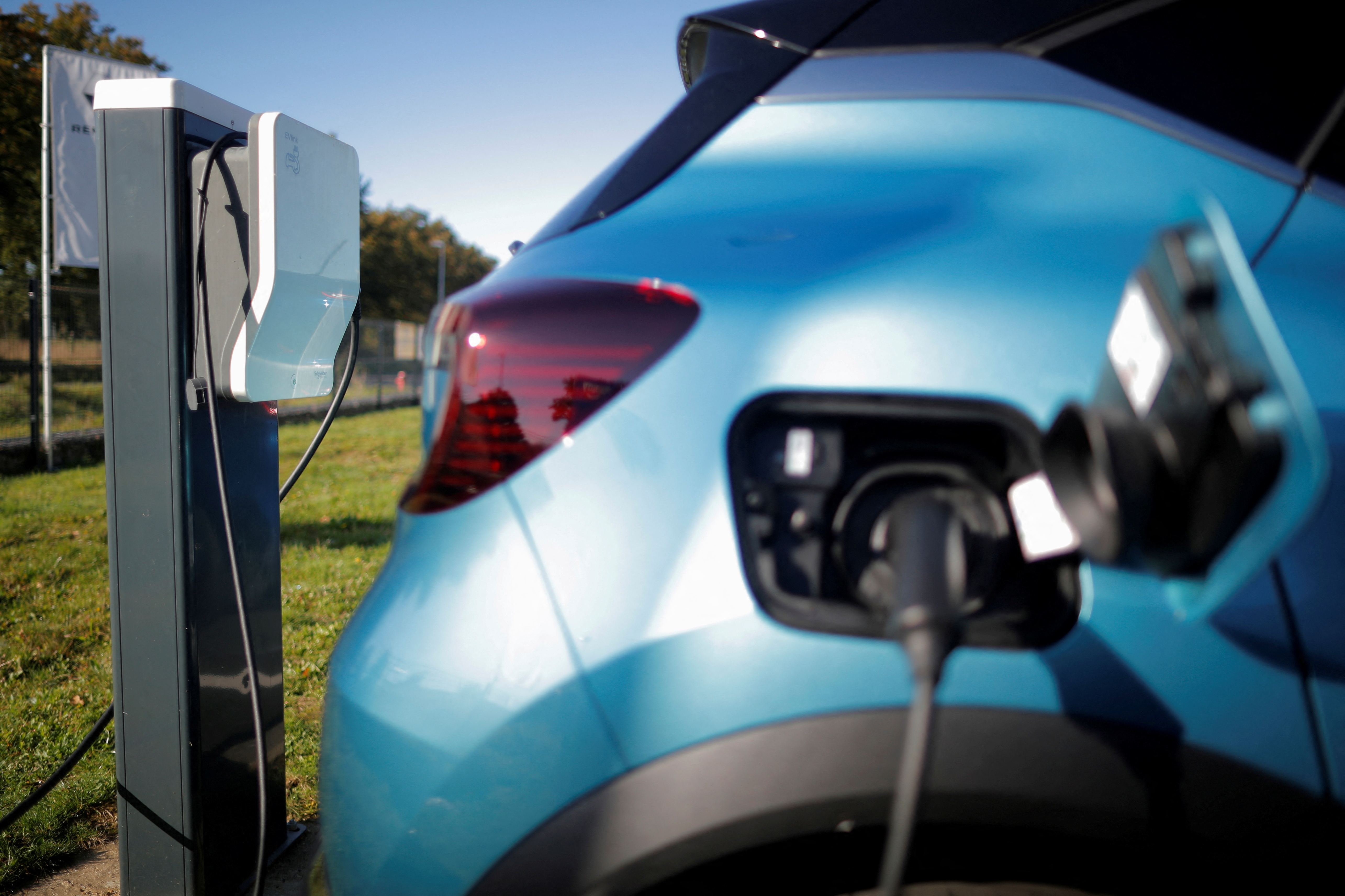
A Renault Wallbox charging station is used by a Renault Captur plug-in hybrid at a dealership in Les Sorinieres, near Nantes, France, October 23, 2020. Photo taken October 23, 2020. REUTERS/Stephane Mahe/File photo Obtaining licensing rights
MUNICH, Sept 4 (Reuters) – Europe’s automakers face an uphill battle to produce low-cost electric vehicles and erase China’s lead in developing cheaper, more consumer-friendly models, analysts and industry executives said at the IAA Mobility Fair in Munich. .
“We have to close the gap in costs with some of the Chinese players who started manufacturing electric cars a generation ago,” Renault (RENA.PA) CEO Luca De Meo told Reuters at the auto show, adding that when manufacturing costs fall, prices will also fall. . .
As part of the French automaker’s drive toward price parity with the Chinese, the R5 EV due next year will be 25% to 30% cheaper than its Scenic and Megane electric models, De Meo said.
Chinese electric car makers, including BYD (002594.SZ), Nio (9866.HK) and Xpeng (9868.HK), are targeting the electric vehicle market in Europe, with sales rising nearly 55% to about 820,000 vehicles in the first seven months of 2023. Makes up about 13% of total car sales.
According to automotive consultancy Inovev, 8% of new electric vehicles sold in Europe so far this year were made by Chinese brands, up from 6% last year and 4% in 2021.
About 41% of exhibitors at this year’s Munich event are headquartered in Asia, with twice as many Chinese companies participating, including electric car makers BYD and Xpeng and battery maker CATL (300750.SZ).
“What was once a performance by the German auto industry to show its very strong position, is now a meeting of equals between progressive players from all over the world, especially China,” said Fabian Brandt of consultancy Oliver Wyman.
The arrival of Chinese electric car makers in Europe has raised concerns that they will undercut domestic automakers and dominate electric vehicle sales.
The average price of an electric vehicle in China was less than 32,000 euros ($35,000) in the first half of 2022, compared to about 56,000 euros in Europe, according to researchers at Jato Dynamics.
“Europe has to stop being naive from a macroeconomic point of view vis-à-vis China,” Renault’s engineering chief Gilles Le Burny told reporters on Sunday, referring to the country’s control over the entire battery supply chain.
Mercedes-Benz (MBGn.DE) will introduce the compact CLA and BMW (BMWG.DE) the Neue Klasse, both targeting higher range and efficiency, while cutting production costs by half.
Volkswagen (VOWG_p.DE) CEO Oliver Blume told reporters that through its partnerships in China, the automaker aims to reduce battery cell costs by 50%.
“We’re going to have to work hard on cost,” Bloom said.
While automakers inside the show were talking about their green cars, activists from Greenpeace organized a protest against the emissions of their fossil fuel-powered cars that are still in production.
The demonstrators drowned three upper sections of cars in an artificial lake in front of the auto show, and held up banners reading “Auto industry wastes climate protection” and “Shrink now or sink later.”
($1 = 0.9273 euros)
Writing by Nick Carey. (Reporting by Victoria Valdersi, Jill Gillum and Christina Ammann; Preparing by Muhammad for the Arabic Bulletin) Editing by Frederic Hine, Clarence Fernandez and Sharon Singleton
Our standards: Thomson Reuters Trust Principles.

“Beer aficionado. Gamer. Alcohol fanatic. Evil food trailblazer. Avid bacon maven.”
